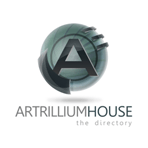
Sunday, January 24, 2010
National Mentoring Program for Young and Emerging Artists

Friday, January 15, 2010
Art Competition Tips for Artists & Organisers

For organizers – the article Tips for Running Artistic Competitions encourages viewing the organization of art competitons as a marketing opportunity. Matters to be considered for successful art competitions include initial logo development, a two stage competition structure and the provision of runner up prizes as incentives.
Pic Credit: Simon Howden
Sunday, January 10, 2010
Art Connecting with Business

In June 2008, Jane Haley, CEO of The Australian Business Arts Foundation (AbaF) reported:
“Artists don’t need to be business people – they need time to be artists.”
Since that meeting AbaF has provided business skills development to more than 1000 visual artists throughout Australia.
“Those artists told us that these skills are exactly what they were looking for. They have learned the kind of business basics that sole traders in any industry need to know. They have grabbed the knowledge and are using it.” Haley writes.
AbaF is an organisation focused upon making connections. Working with large and small businesses, all types of arts organisations, individual artists, trusts and foundations, the AbaF promotes private sector support for the arts through three key programs: Partnering, Giving and Volunteering.
The AbaF Artist Business program includes a free workshop covering business essentials like tax, insurance, risk management and copyright. Topics also featured include building relationships with clients and galleries, going to market, documenting artwork, building a client base, promotion and media relations.
Artists can also ask specific questions using the AbaF adviceLine and/or request a business adviser to assist with a specific project through adviceBank.
In connecting artists with donors, AbaF will provide artists advice and information about how to harness the support of their existing network strategically to help raise money. If an artist doesn’t have any 'supporters' AbaF will suggest investigating scholarships, prizes, residencies particularly to an artist’s artform/locality as a starting point.
The AbaF is not a membership body. All businesses, not-for-profit cultural organisations, individual donors and foundations can become involved with AbaF and access their services without charge.
AbaF is a national organisation headquartered in Melbourne. For more information about Artist Business or workshop dates, a list of State contacts is found here .


